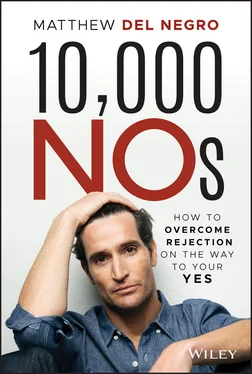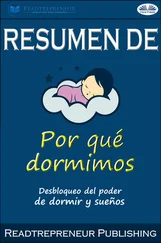—Terry Knickerbocker, Acting Coach
Prior to being considered one of the best acting coaches in a highly competitive industry, Knickerbocker failed out of Boston University. It was not a lack of ability or intelligence that cut his undergraduate studies short. It was a failure to show up to class that undid him. Regardless of the size of your talent or your natural-born abilities, if you fail to work hard or to do so consistently, you will never reach your potential. You may get by. You may even excel in comparison to your competition. But you will never be able to look yourself in the eye with the pride that comes from knowing you gave it your all.
“You can be like Jack Horner and chisel a plum
And think you're a wonderful guy.
But the Man in the Glass says you're only a bum
If you can't look him square in the eye.”
—“The Guy in the Glass,” Dale Wimbrow
Passion and interest certainly play a part in consistently chipping away at a goal for long periods of time. But something that I think may be overlooked by many, which is the key to increasing a strong work ethic, is the mindset that usually accompanies this process. Contrary to what many people may believe, almost every high achiever known for their incredible work ethic developed it because a voice inside their head told them that their God-given talent on its own was not good enough to get them to where they wanted to be.
“We are not particularly well-spoken, we are not particularly good-looking, we are not particularly intelligent, we are … generally speaking a B-minus across the board, and yet we just fucking killed ourselves, and worked our asses off and found a way to push that boulder up the mountain. And I think people look at us, and rightfully so, and they think, ‘If those guys can do it, I think anybody can do this.’”
—Mark Duplass, Filmmaker and Actor, on the massive success he and his brother have had in Hollywood circumnavigating the system
The fact that these people have accomplished so much, and are many times rewarded with prestigious accolades or larger-than-average financial rewards, has caused others to incorrectly deduce that these people were just born “better than the rest of us.” Someone watching a highlight reel of NBA star Steph Curry draining three-pointer buzzer-beaters in high-pressure games might think he's just a more naturally gifted shooter than the majority of his basketball counterparts. While he does possess an enormous amount of athletic ability, the painstaking detail and consistency that goes into his daily shooting regimen is well-known and something he often speaks about. A similar narrative carries across all industries, whether we are talking about an athlete, actor, comedian, CEO, or politician. These superstars' work ethics are their common thread, like an insurance policy against chance and mere talent.
Let's break down the psychology of a strong work ethic. Bumper stickers abound spouting slogans like “No Fear.” But perhaps my friend and former podcast guest Tony Blauer has it more accurate with his own company, Know Fear. Blauer is one of the world's top self-defense experts, having trained scores of Tier One Operators (a.k.a. Navy SEALs, Army Rangers, etc.) as well as housewives and everyday citizens. His philosophy is that, rather than stick our heads in the sand pretending we are safe, we need to familiarize ourselves with fear. We need to be incredibly aware of our surroundings and the potential for danger at any time, whether it be from an assailant on the street or a car in an oncoming traffic lane. Blauer teaches that it is only in leaning into the fear and sadness of losing one's loved ones that people are motivated to take the proper precautions to reduce the chances of that happening. Fear, in this case, becomes the motivator that signs us up to get the training necessary to protect ourselves and our families. That training and awareness can be considered “good work ethic” within the realm of self-defense.
As an actor, I know fear every time I'm on a new set in a new role. My consistent training has reduced this fear. And over time, my experience has provided me examples that I can draw from, of times where I have overcome my fear in the past, which helps me to keep it in check. But new environments can bring new challenges that sometimes make me feel like I'm starting all over again. When I was young and I'd hear a legendary actor like Gene Hackman wonder if he was ever going to work again once he wrapped a film, I thought it was an insincere ploy for sympathy. But now, as a consistently working actor myself, I finally understand his statement. The years have taught me that I can never predict what is coming next. Likewise, on a new set with new players and material, a fear that I won't have what it takes to hack it can sometimes creep into my psyche. My specific career, where much of my work has consisted of extended stints on other people's shows, has brought this challenge up for me repeatedly.
One of these intimidating stints was on The West Wing . While I was eventually cast as Bram Howard, the advance man of Jimmy Smits's Matt Santos character, toward the end of season 6, I had auditioned for a different role two years prior. For that audition, I had made it far enough to eventually read with the show's creator, Aaron Sorkin. Despite having had a nice run on The Sopranos a few years before this, I was a bit scared. The tip from the casting director before I walked into the room was that Sorkin liked it fast, so I would need to pick up my cues and keep the pace at a fast clip. While I wouldn't have considered myself a loyal fan of The West Wing at the time, I had seen enough episodes to know that virtually every character was hyper-articulate and prone to slinging polysyllabic political jargon while marching through the maze-like halls of the West Wing or hotel corridors at a brisk pace—these “walk and talks” quickly became a hallmark of the show and a feature used by many shows since. It was intimidating, to say the least.
On top of this, while I consider myself to be an intelligent human, I have never been particularly astute when it comes to politics. With an exorbitant amount of preparation, however, I was able to successfully make it through my reading with Sorkin. Knowing that there were only a few other actors in the running, coupled with the fact that they were looking to “cast an unknown” in this role, I actually walked out of that room believing I had a legitimate shot. I was wrong. Rather than offering the role to me or one of the other handful of “unknowns,” they gave it to Matthew Perry, who was fresh off of the smash hit Friends . Such is Hollywood. I was forced to chalk it up as another of my 10,000 “no”s when Perry eventually won an Emmy for his performance.
Two years later, in 2005, while temporarily in Los Angeles attempting to score a series regular role on a new show during pilot season (the time of year when pilots, a.k.a. first episodes of a new series, are being cast for the following season of TV), I went in again for what was advertised as a one-off guest star role on The West Wing . Again, there was a mountain of political jargon to climb, and my fear of flubbing it helped me to prepare for the audition enough that I was eventually chosen for the role. Ironically, I remember feeling worse coming out of that room than I did after the Sorkin audition two years before. (How an actor feels about their audition does not always correlate to whether or not they get the job.)
Getting the gig was a victory considering the pedigree of the show. But when I went to my first fitting, I picked up an inside scoop from a member of the wardrobe department, who eventually became a friend, that raised the stakes for me considerably. He told me that my storyline was part of a new direction on the show that involved the campaign trail for Jimmy Smits's character, Matt Santos, running for President. John Wells, who had since taken the reins of the show from Aaron Sorkin, was apparently using these guest spots as a way to audition actors for a potentially longer stint on the show. In essence, my new confidante was telling me, “Don't eff it up!”
Читать дальше












